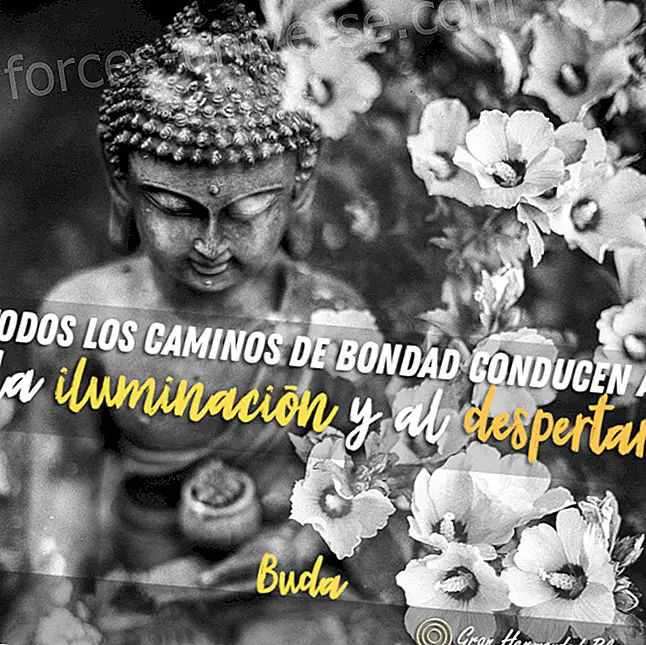
Next we will share a video with beautiful images of nature and the animal kingdom, along with current issues such as animal extinction, deforestation, environmental pollution, global warming, garbage and landfills, and possible and concrete actions that are within our reach, in the day to day.
We also share an article with clear information about this.
You can contribute Possible and concrete actions
Garbage is what we take out daily in plastic bags, black if possible so as not to see what's inside.
Garbage is what we generate with our daily consumption. They are the papers used, the bags used, the empty and dirty containers, the plastics, etc. It is also organic waste, husks, vegetable remains, etc. All this is stored in a bag and thrown away as if it magically disappears.
But it does not disappear. Have you ever wondered where this garbage goes? To landfills, large landfills that generate pollution to the earth, great diseases, fires, deaths. And this we generate among all, although we do not want to see it, there we are, because it is what we produce. It could be said that garbage is also our shadow.
Nowadays the issue of landfills is a highly worrying issue, since the limit of garbage production is being reached, and the limit of soil and water pollution derived from this.
Many countries and communes are already working on garbage separation campaigns. Other countries have not yet begun this work. We are in the place that we are, we can do our own task, and with it be examples of a change of consciousness.
The proposal is to generate less garbage: Be more aware of what is consumed. Separate the garbage and recycle it.
Organic material
Peels, wastes of fruits, vegetables, pruning, grass, leaves etc., instead of being disposed of in household trash bags, they can be separated and thrown into a compost in your home.
There is a characteristic smell of garbage bags, that smell is the degradation of organic waste in a plastic bag when mixed with other materials. You can reduce your trash, avoid its bad smell and soil contamination.
Composting is the controlled decomposition of organic materials such as fruits, vegetables, pruning, grass, leaves, etc.
Below you will find the steps to carry out composting in the yard of your house. This is a good way to reduce your organic household waste and generate a fertilizer of magnificent characteristics for your garden, orchard or any similar use.
You can contribute:
In the yard of your house you can make a moderately deep well. Add organic waste of plant origin there. Moisten it evenly from time to time and take care that it has good ventilation. So that it is not outdoors you can cover it with dry grass or branches.
Slowly the size of the waste will be reduced as the material degrades. This mixture is very good for the fertilizer and natural fertilization of the earth. [source]
Recycling of glass, paper, PET containers such as plastic bottles (containers with this sign can be recycled :)
Nowadays, many cities and towns are working with recycling since garbage production is being a problem for all municipalities.
If you don't know where you can take these materials to be recycled in your place, you can search online or ask in the municipality where you live, or in NGOs (Non-Governmental Organizations) related to the ecology. If in your municipality or city there is nothing generated about it, you can help generate it. Many times it is simply a matter of organizing among neighbors and appealing to the help of the municipality, establishing, for example, specific strategic places where people can take their previously separated waste in a day. a given month (for example, the second Saturday of each month), and then these wastes are searched by recycling companies, which benefit from all this raw material. That may be a first step. If you know where these materials can be taken, you should only take them separately, finding out in advance the types of materials that are received in that particular place. That way you greatly reduce the amount of garbage.
And if then there is goodwill on the part of the municipality as well as its inhabitants, other steps can be taken, such as the separation of waste in the home and their collection separately by the trucks in charge of the collection. And the same municipality could benefit from all that raw material.
In fact there are countries and cities that are already implementing the separation of garbage in different containers. In some places the method of Separation of dry and wet trash is used. If you are already implementing this system in your area, collaborate by properly separating the materials and helping people who do not understand their importance.
You can contribute:
Garbage separation is a habit that demands a lot of dialogue and incentives, but once incorporated it is done routinely and brings enormous benefits to all.
Whenever you can, use glass containers.
Choose containers that can be recycled.
Reject products with excessive packaging.
Encourage your business or company to recycle paper and glass.
Plastic bags:
Plastic bags do not degrade, they are dragged to different parts of our land, to seas, lakes and rivers.
The bags find their way to the sea in the drains and in the pipes.
Large islands made of accumulation of plastic bags floating in the ocean have been found.
The effect on wildlife is catastrophic. The birds are trapped without hope. Nearly 200 different species of marine life, including whales, dolphins, seals and turtles die from plastic bags. They die after ingesting the plastic bags that they confuse with food.
If we use a cloth bag instead of plastic bags we can save between 6 and 30 or more bags per week. That is, between 24 and 900 or more bags per month. Keep calculating.
You can contribute:
Take your own cloth bag to the supermarket or greengrocer.
Do not accept the bags in the places that offer them to you.
In addition to avoiding plastic bags, avoid as much as possible everything derived from plastic and choose non-polluting alternatives.
If you are going to buy products that dirty bags such as cheeses, olives etc., you can take your own container like tuppers, jars, etc. and ask the seller to use them instead of bags.
Wash the bags that have become soiled and reuse them.
If you usually consume ice cream in expanded polystyrene pots (also known as telgopor, plastoform, isopor, icopor, boom, forexpan, white cork, unicel, etc.) you can wash the pots and reuse them, since this material has the same incidence as the bags or even worse.
Paper:
Awareness with the use of paper. The paper is produced with the trees, large quantities of forests are cut down to meet the production of large wastebaskets, which in turn also pollute.
Use paper with awareness, don't waste it. After using it you can recycle it or use it for another purpose.
You can contribute:
Buy recycled paper.
Use cloth napkins and tissues and not paper.
Avoid choosing white paper and cardboard whenever you can, as these carry more chemical processes.
Forests:
Forests play a fundamental role in climate regulation, maintenance of water sources and flows and soil conservation. Therefore, forests and other forests are possibly the most important natural heritage but also the most threatened and predated by the hand of man. [source]
Annually, a total of 7.3 million hectares of forest are lost worldwide, which is about 20, 000 hectares per day, an area that is equivalent to all of New York according to 2007 data. [Source]
You can contribute:
Plant trees of all kinds: fruit, floral, native.
Have your own garden.
Start sowing a seed in at least one pot and you will see how beautiful it is to see life grow from your hands in harmony with the Earth.
Avoid deforestation, denounce the indiscriminate felling of trees and avoid using products that have been favored with it.
Wild life:
Take care of all life, animals and plants. Respect their lives, they are evolving beings too. And not only their presence on earth makes our lives more beautiful and diverse, but they are also beings that are contributing to the balance of the ecosystem. If one species disappears or dies out, another species spreads, thus breaking the balance of nature.
With deforestation not only forests disappear; along with them large numbers of wild species disappear too.
Also hunting and fishing are extinguishing unique species.
You can contribute:
Observe and denounce what is within your reach on these issues.
Collaborate with campaigns that are working to stop hunting and deforestation.
Do not buy products that have been manufactured by hunting, fishing or deforestation, such as soybeans.
Water:
We don't realize it but the water also has a limit.
While in many places clean and fresh water is taken for granted, in others it is a scarce resource due to lack of water or contamination of its sources. Approximately 1.1 billion people, that is, 18 percent of the world's population, do not have access to safe sources of drinking water. In developing countries, more than 2, 200 million people, most of them children, die every year from diseases associated with lack of access to drinking water, inadequate sanitation and unhealthiness. In addition, many of the people living in developing countries suffer from diseases caused directly or indirectly by the consumption of contaminated food or water.
Water problems have an important gender implication. Frequently in developing countries, women are responsible for transporting water. On average, they have to travel distances of 6 kilometers daily, carrying the equivalent of a piece of luggage, or 20 kilograms.
Having water allows us to live, take care of it and be aware that having it is a blessing is our responsibility. [source]
You can contribute:
Do not waste it.
Close the faucets you don't use. Note that it is not necessary to have the bobbin open while soaping the dishes or while brushing your teeth.
Water the necessary.
Repair leaks or water leaks.
Reuse washing water from fruits or vegetables for example to water.
Batteries:
Batteries, batteries and micropiles invade daily homes in radios, flashlights, watches, diskmans, cameras, calculators, toys, computers, etc.
The operation of the batteries is based on a set of chemical reactions that provide a certain amount of electricity. But this favorable advantage of autonomy is opposed to the negative effects of the chemical compounds used in the reaction where electricity is produced, since they are mostly heavy metals, which released into the environment cause serious pollution problems.
A single alkaline battery can contaminate 175, 000 liters of water (more than a man can consume in his entire life).
A micropile of mercury can contaminate 600, 000 liters of water.
The batteries are thrown with the rest of the household garbage, being dumped in garbage dumps, either open pit or sanitary landfills and in other cases to vacant land, ditches, neighborhood roads, waterways, etc. To imagine the magnitude of the contamination of these batteries, it is enough to know that they are the cause of 93% of Mercury in household waste, as well as 47% of Zinc, 48% of Cadmium, 22% of Nickel, etc.
If we dispose of them with the rest of the waste, they will end up in landfills or in incineration plants. In the landfills, with the passage of time, the batteries lose the housing and its content is poured, which ends up contaminating the groundwater and the soil and with it it is introduced into the natural food chains, from which the human being is nourished. In incineration plants, the resulting emanations will give rise to volatile toxic elements, polluting the air.
You can contribute:
Reduces the use of devices that require batteries. In compensation you can use devices connected to the mains.
And if it is inevitable, use them with awareness, and once used you have these possibilities to avoid contamination:
When disposing of them, the smartest option is to deposit the used batteries in the places destined for their collection and to demand the recycling of the competent organisms.
You can take them to specific containers. There are usually specific points for collecting batteries in municipal buildings, in collaborating stores such as some photo, electronics, hardware stores and even in several supermarkets.
If you don't know any place, ask in the municipality or in places where they sell them.
Once collected in these containers, the batteries are taken to a recycling plant where hazardous metals are segregated and separated from the rest of the materials that constitute the battery.
Another option is to opt for rechargeable batteries, which although they are contaminants, some can be used up to 500 times, which makes them more convenient.
The filters of cigarettes or cigarette butts:
Cigarette butts are made of acetate and are NOT biodegradable, that is, they remain from months to even 10 years until they decompose.
It is common knowledge that cigarettes are dangerous to our health and we also know what pollutes cigarette butts. Now in a new study of Public Health, Richard Gersberg Researcher at San Diego State University says that cigarette butts should be considered toxic waste.
We can all observe in any public place the immense amount of cigarette butts thrown on the ground, as well as we can observe people who smoke throwing them as if it were something totally natural.
The study shows that chemical debris from a cigarette butt can seep into the environment and kill marine life. But the Cigarette Butt Advisory Group goes further and promotes the inclusion of cigarette butts in the list of highly toxic and hazardous wastes.
What happens to these filters, where are they going to stop? This residue dirties our streets, but the most worrying thing is that, generally, the rain drags them to river courses, reaching the coasts and fields.
Despite their appearance the filters are not biodegradable, they are made of cellulose acetate, which takes a long time to degrade. Some sources say that it can take from months to even 10 years for them to decompose.
But the basic problem is not in the time that these residues last, but in the toxicity that they accumulate. The cigarette butt filter is designed to accumulate tobacco components, including the most harmful chemicals, of course so that the smoker does not ingest them. But these components are released in contact with water. Therefore, when they reach the rivers or even the sea, they release these substances, which poses a serious threat to biodiversity. In this regard, the University of Longwood (United States) conducted a study on the effect of the elements released from cigarette butts on the water flea, crustacean base of the food chain in freshwater ecosystems. For concentrations of less than 0.125 butts per liter, water fleas die in less than 48 hours.
A cigarette butt causes the contamination of 50 liters of water.
Other impacts caused by cigarette butts:
Butts are also one of the causes of forest fires that cause so much damage to our forest area.
Butts can be accidentally ingested by young children. And they have also been found in the stomachs of different species of birds, turtles and other marine species.
The garbage that the butts cause in our streets, supposes great costs of cleaning, in addition to a visual impact. Butts are everywhere. According to estimates, cigarette butts represent 26% of the garbage that is collected on the beaches. [source]
You can contribute:
Needless to say, the solution to this is not to smoke. But if this is too demanding at this time, you can start by reducing what you smoke and selecting what you smoke.
You can make your own cigarettes with tobacco and paper made for this purpose, called match. In this way the cigarettes you consume will not have a cigarette butt.
And finally, let's remember something fundamental again: everything we undertake, that is with joy.
If what we do, no matter how noble, necessary and fair it may seem, we do it from complaint, anger or resentment, we will be producing more of the same. The challenge is to see reality and modify it with a smile on our face. With immense joy in the heart knowing that we are collaborating, that we are one more trying to bring a happy transformation to the planet. Of course starting with me first to produce the change on a larger scale.
And mainly if we are focusing well and doing things with the heart, there will be no lack of deep gratitude to Mother Earth for giving us shelter and soil conducive to growth and evolution.
……………………………………………… ..
By www.caminosalser.com
Nancy Erica Ortiz
Sebastian Alberoni
https://www.caminosalser.com/886-ecologia/ecologia-que-podemos-hacer-para-aportar-al-cambio-y-al-cuidado-de-la-tierra/






